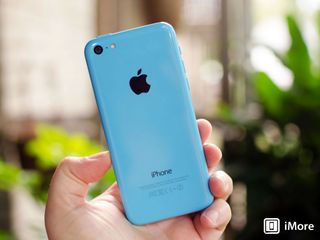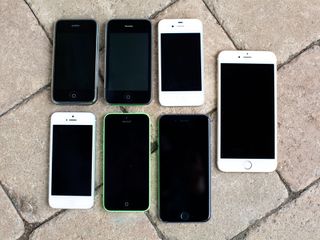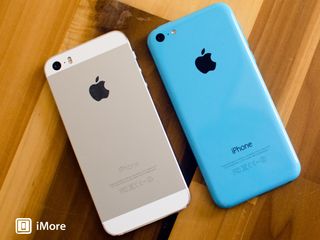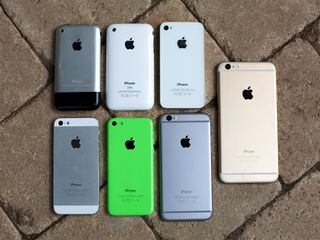Does Apple need an iPhone 6c?

Update: Enter the iPhone SE
While this occupies many minds, I believe what – If anything – happens to the iPhone 5c will make more of a difference to Apple as 2016 approaches.
It is fair to say that the iPhone 5c has not been the success that it was hoped to be, even by Apple's admission (Tim Cook during Apple's earnings call in January 2014). What went wrong? Well, a few things, from my perspective.
First, the market anticipated the iPhone 5c to be a far less expensive device, despite the absence of any historical evidence that this down-market approach was one Apple had ever favored. Consequently, when the 5c actually reached the market, the price was higher than had generally been expected. In some markets, due to taxes and currency exchange rates, the 5c was even more expensive than the iPhone 5s.
Second, since the press labeled the iPhone 5c as the "cheap iPhone," I believe that created a negative impression that pushed some Apple-friendly consumers towards older flagship models like the iPhone 4s – which by then was offered at a very competitive price, but did not lose its "flagship" status or take on the "cheap" label.
How Important is screen size?

So, who bought the iPhone 5c? As surprising as this may sound, the typical iPhone 5c buyer was not too different from the general Apple buyer profile – slightly more male in the US and China, 25-to-49 years old in the US and, under 24 years old in China. Device durability was the most important driver of satisfaction in the US, while in China, screen clarity and resolution brought the greatest satisfaction
Some industry watchers have argued that Apple needs to keep the same screen size as the 5c. But, screen size was one of the factors about which consumers were dissatisfied – especially in China. It is hard to imagine that Apple could gain much from keeping the smaller screen size, other than some modest cost savings.
Master your iPhone in minutes
iMore offers spot-on advice and guidance from our team of experts, with decades of Apple device experience to lean on. Learn more with iMore!
Considering the iPhone 5s will likely to be available for a while longer, Apple can continue to offer it to people who do not want a larger screen. But, moving the iPhone 5c upgrade to a 4.7 inch screen and therefore keeping it more consistent with the current flagship models could benefit Apple more, especially in China. A more consistent screen for the latest models will also please developers and help with any UI development that might come in the future.
What's In a name?

The iPhone 5c never became the blockbuster the industry expected, but its performance among buyers proved to be solid. Looking at data from current customers who said they are "very satisfied" with their device, iPhone 5c users are in line with 5s owners, and slightly more satisfied than iPhone 5 buyers.
Among iPhone 5c users intending to upgrade their device in the next three months, 92% mentioned Apple as their preferred brand.
Since the launch of the 5c, Apple has added smartwatches to its product portfolio and has been able to create three distinct lines without diluting brand value. No one thinks of the Watch Sport edition as "the cheap Apple Watch," so a similar approach might offset some of the negative connotations this model has been subjected to.
Endgame: Drive upgrades from all older models

What would be the right price for this new device?
Logic suggests somewhere between the price of the iPhone 5s and the iPhone 6. But is a new device needed to address that space or would the usual drop in price of the current flagship be enough? History would suggest that a price drop would suffice, at least from a sales perspective. Margins could be better if Apple designed a device that had a lower billing of material cost, but positioning such a device might end up costing the brand more through cannibalization of the flagship.
The installed base of the iPhone 5c is too small to justify a dedicated device to provide an upgrade path. 31% of US iPhone owners and 32% of owners in China bought their iPhone more than 24 months ago and they have not upgraded either because they are not very engaged users or because they are waiting, as many do, for that flagship price drop.
With mature markets at a high saturation point, changes in subsidies in the US market, and the growth opportunity moving more to emerging markets, defining a strategy in the mid-tier segment is as important as ever for Apple. Yet, finding the balance between reaching more users who could not afford the flagship models, and avoiding cannibalizing those models, is no easy task. Considering how much pressure other players in the mid-tier are facing it seems to me that Apple would have more to lose in trying to address that space with a dedicated device since the damage to the brand could run wider and deeper than the success that an iPhone 6c would ever have.
○ iPhone SE review
○ iPhone SE FAQ
○ iPhone SE buyers guide
○ iPhone SE hub
○ iPhone SE specs
○ iPhone SE discussion
○ See at Apple.com
○ iOS 10 news
Carolina Milanesi is Chief of Research at KANTAR WORLDPANEL ComTech. Carolina joined KWP Comtech in 2014 after 14 years at Gartner, most recently as their Consumer Devices Research VP and Agenda Manger. You can follow her on Twitter @carolina_milanesi.
Most Popular






